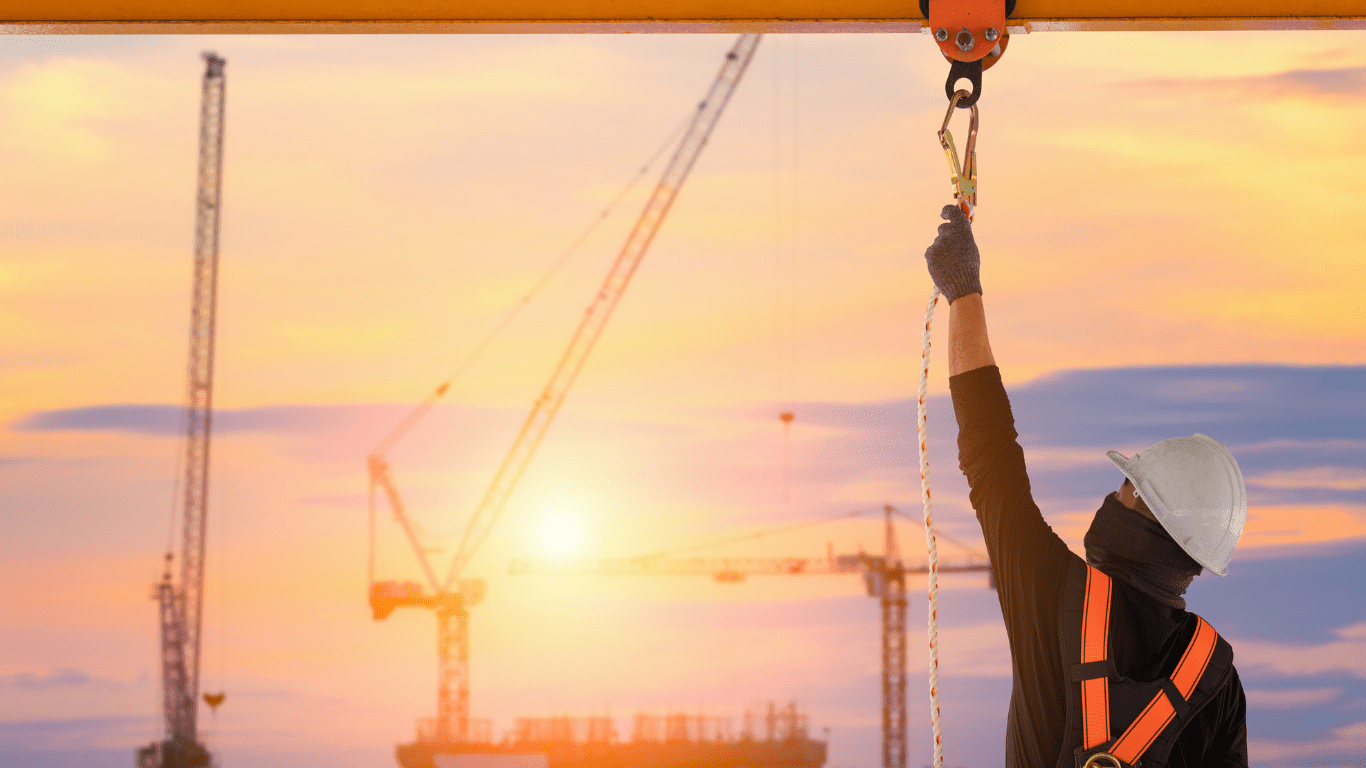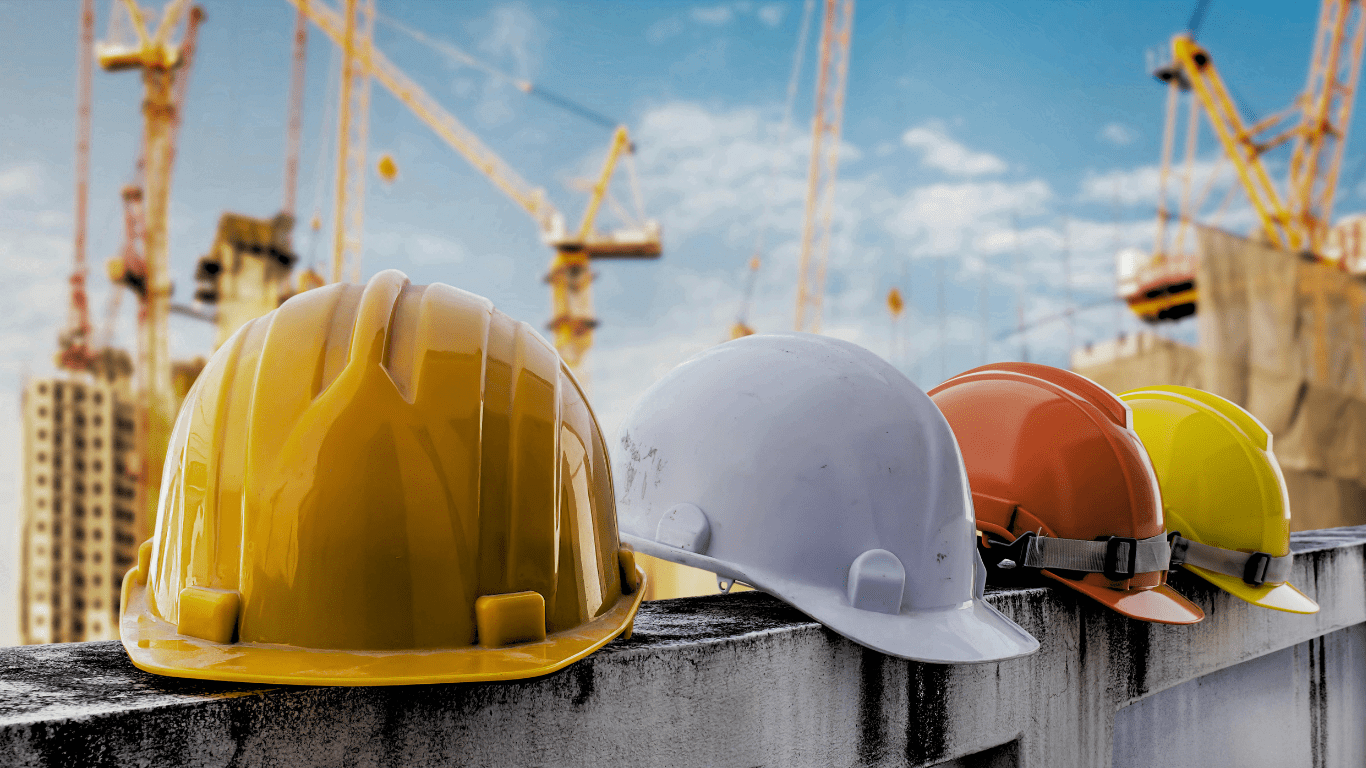Response to Global Crisis
In recent years the construction sector has needed to establish a series of robust measures in response to global crises, including the Covid-19 pandemic and energy disruptions. These measures aim to mitigate risks associated with such global challenges. Looking forward to the remainder of 2024 and beyond, buying organisations are navigating a transition into a new landscape of supply chain risk.
This article looks at pressing concerns poised to shape construction supply chains over the coming months. From the amendments to the Building Safety Act 2023 to intensifying pressures of sustainability compliance due of international law. The shift in procurement policies alongside climate change, geopolitical tensions, and reputational safeguarding each necessitates a strategic approach from construction businesses.
Sustainability and Compliance Pressures

Concerning sustainability and compliance pressures, the construction industry faces a rapidly evolving regulatory landscape that will significantly impact how businesses operate and report on their sustainability practices. Central to this are the forthcoming Corporate Sustainability Reporting Directive (CSRD) and Corporate Sustainability Due Diligence Directive (CSDDD), which are set to extend their reach to businesses of various sizes in the coming years. These directives drive a heightened focus on transparency, accountability, and ethical practices within corporate supply chains, reflecting a broader shift towards sustainable development and corporate responsibility.
In anticipation of these broader European regulations, Germany has taken proactive steps by implementing the Lieferkettengesetz. This act mandates companies to ensure compliance with human rights and environmental standards not only within their operations but also across their supply chains. This move by Germany could serve as a blueprint for other nations and industries, including construction, as they prepare to align with the CSRD and CSDDD.
For construction businesses, adapting to these regulations necessitates a robust framework for reporting and verifying compliance, likely increasing reliance on third-party audits and certifications to validate sustainability claims and due diligence efforts.
Global Economic Uncertainty Due to Geopolitical Tensions
The construction industry is navigating through a period marked by significant economic and geopolitical uncertainties that directly influence global supply chains and project viability. The ongoing conflict in Ukraine, for example, has disrupted construction projects by causing supply chain closures and escalating costs for materials, highlighting the sector’s vulnerability to geopolitical tensions. Furthermore, the industry is grappling with challenges such as rising material costs and labour shortages, exacerbated by broader economic pressures and competition from emerging markets.
The Impact of Climate Change
The impact of climate change on the construction industry is multifaceted, influencing everything from project planning and execution to long-term infrastructure resilience. The increasing frequency and severity of extreme weather events due to climate change pose significant risks to construction projects. It can disrupt timelines, damage materials, and inflate costs. According to the CDP companies face up to $120B in costs from environmental climate risks by 2026. Moreover, the industry faces growing pressure to measure and reduce carbon emissions across its operations, aligning with global sustainability goals and regulatory mandates.

Climate change’s influence on supply chain risk management is profound, necessitating a shift towards more sustainable construction practices. This includes the adoption of green building materials, energy-efficient designs, and technologies that reduce the carbon footprint. The emphasis on sustainability is further highlighted by evolving legislation and consumer expectations, driving the need for comprehensive carbon measurement and reporting mechanisms within the industry.
Measuring carbon emissions is becoming a critical component of supply chain risk management, with tools and frameworks being developed to facilitate accurate and transparent reporting. This enables construction companies to identify high-emission areas within their supply chains, implement targeted reduction strategies, and comply with regulatory requirements. Moreover, effective carbon management can enhance a company’s reputation, open up new business opportunities, and contribute to the global effort against climate change. Achilles provides a complete carbon management solution, including an accredited carbon reduce certification that allows you to make carbon reduction claims with confidence in any market and to any stakeholder group.
Building Safety Act Amendments
The inception of the BSA was driven by the urgent need for reform in the wake of the Grenfell disaster. The amendments introduced in October 2023 mark another enhancement to building safety standards. The amendments also represent a significant risk hotspot for construction supply chains, particularly with the heightened focus on safety for high-rise buildings. The changes focus on the establishment of roles such as Duty Holders and Regulators to ensure that accountability is visible throughout a project. This is further embedded through introduction of the ‘Golden Thread’ and refers to a digital record of all building and project information.
Read our article on the Building Safety Act, the Amendments and Common Assessment Alignment
For construction organisations, being aligned with these new enhancements to the BSA is essential to ensure compliance and mitigate risk.
Reputational Damage Through Greenwashing and Unethical Work Practices
Recent guidance both in the UK and internationally has heightened scrutiny on greenwashing. The UK’s Financial Conduct Authority (FCA) is enhancing transparency and trust with new initiatives, while the EU’s Green Claims Directive establishes clearer criteria for environmental assertions. In the US, updates to the FTC’s Green Guides are cracking down on deceptive sustainability marketing. With this crack down on Greenwashing bringing large corporations into the media firing line it is clear to see the reputational damage that can be wrought through greenwashing
The Construction sector is one of the most vulnerable when it comes to reputational damage as a consequence of unethical work practices. A survey of 7822 construction workers in 22/23 by Achilles found that 54% of workers were unable to provide valid right to work documentation and 34% were not provided with a contract of employment. This leaning towards an informal workforce leaves the door open for unethical work practices and modern slavery.
The Chartered Institute of Building highlights this risk of exploitation for both British and migrant workers in the UK construction industry. Aside from the moral implications, this underscores the reputational risks associated with unethical labour practices.
Addressing these issues is important for maintaining ethical standards and protecting the industry’s reputation. Achilles offers a number of solutions to support in avoiding greenwashing claims such as out Ethical Business Programme and CAS accreditation
Navigating the PPN03/23 and PPN 03/24
The updates by the Cabinet Office, PPN 03/23 and PPN 03/24, marks a significant shift in procurement practices for contracting authorities and public sector bodies. The introduction of these PPN’s ushers in the adoption of the Common Assessment Standard (CAS) for pre-qualifying suppliers in construction contracts inclusive of those within the public sector. Contracting authorities are given a three-month window from the publication date of PPN 03/24 to fully implement the changes into their procurement processes.
These directives underscore a comprehensive evaluation approach, incorporating a wide array of criteria beyond traditional metrics, including environmental sustainability, social value, and ethical labour practices.
To navigate the changes brought about by PPN 03/23 and 03/24, the public sector need to reassess their construction practices, particularly in areas of sustainability and community engagement, to meet the enhanced requirements of the CAS.
Mitigating the Risks through 2024 and Beyond
As we enter the 2nd quarter of the year managing risks within global supply chains is still an essential process. To remain ethical, compliant and to protect organisational reputation construction companies must find ways to navigate through the complexities and operational disturbances that these risks create. More organisations are moving towards third party solutions in order to traverse regulatory and environmental challenges.
Achilles BuildingConfidence offers the UK’s highest level of construction accreditation, connecting the most discerning buyers with rigorously prequalified sub-contractors and suppliers to provide unrivalled supply chain transparency and reporting confidence.
Contact us to discuss how we can support mitigating risk within your organisations supply chain




